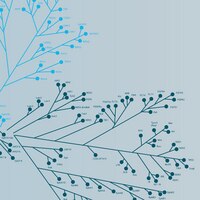14-817 Sigma-AldrichMet (M1268T) Protein, active, 10 µg
Active, N-terminal 6His-tagged, recombinant, human, Met amino acids 974-end, containing the mutation M1268T. For use in Kinase Assays.
More>> Active, N-terminal 6His-tagged, recombinant, human, Met amino acids 974-end, containing the mutation M1268T. For use in Kinase Assays. Less<<Recommended Products
Overview
| Replacement Information |
|---|
| References |
|---|
| Product Information | |
|---|---|
| Quality Level | MQ100 |
| Applications | |
|---|---|
| Application | Active, N-terminal 6His-tagged, recombinant, human, Met amino acids 974-end, containing the mutation M1268T. For use in Kinase Assays. |
| Key Applications |
|
| Physicochemical Information |
|---|
| Dimensions |
|---|
| Materials Information |
|---|
| Toxicological Information |
|---|
| Safety Information according to GHS |
|---|
| Safety Information |
|---|
| Storage and Shipping Information | |
|---|---|
| Storage Conditions | 6 months at -70°C |
| Packaging Information | |
|---|---|
| Material Size | 10 µg |
| Material Package | Available in 250 μg --call for pricing and availability and reference catalog number 14-817M when ordering the 250 μg size. |
| Transport Information |
|---|
| Supplemental Information |
|---|
| Specifications |
|---|
| Global Trade Item Number | |
|---|---|
| Catalogue Number | GTIN |
| 14-817 | 04053252276057 |
Documentation
Met (M1268T) Protein, active, 10 µg SDS
| Title |
|---|
Met (M1268T) Protein, active, 10 µg Certificates of Analysis
| Title | Lot Number |
|---|---|
| Met (M1268T), active - D7SN049N-B | D7SN049N-B |








